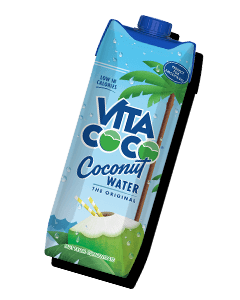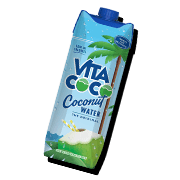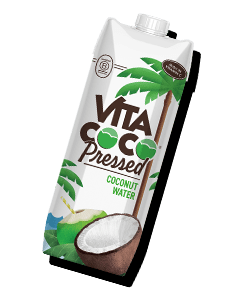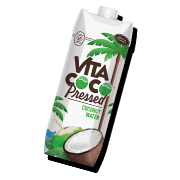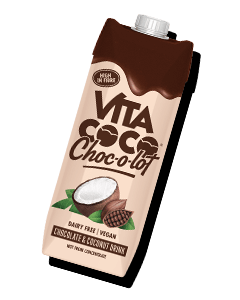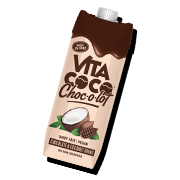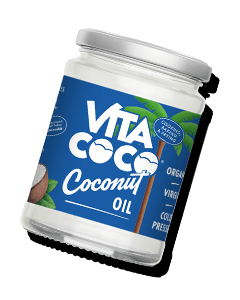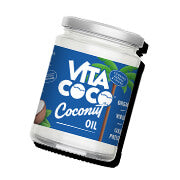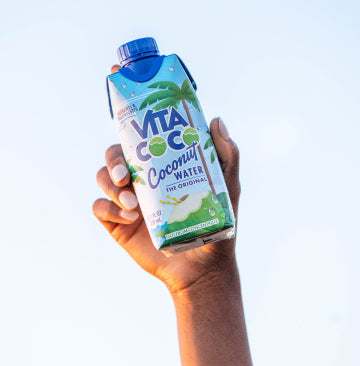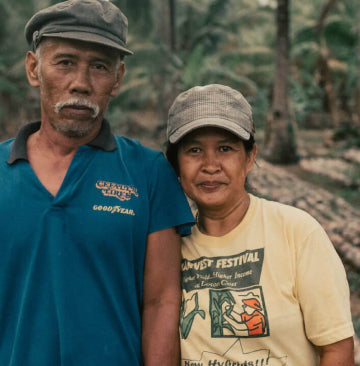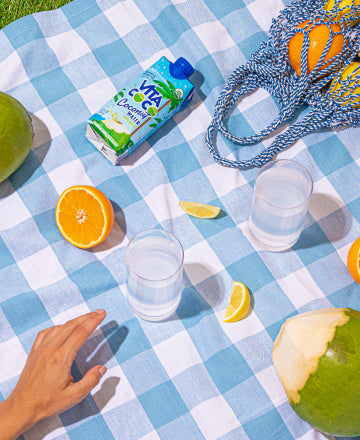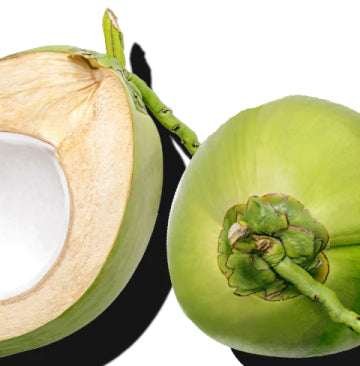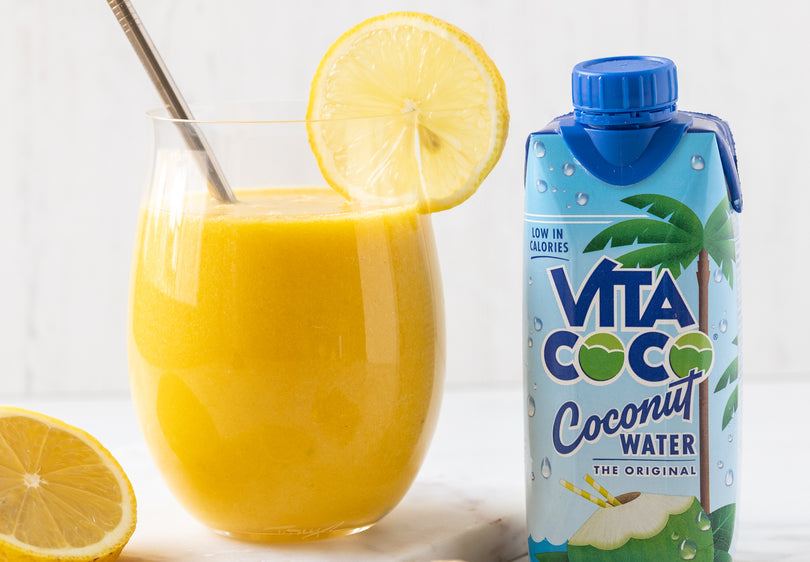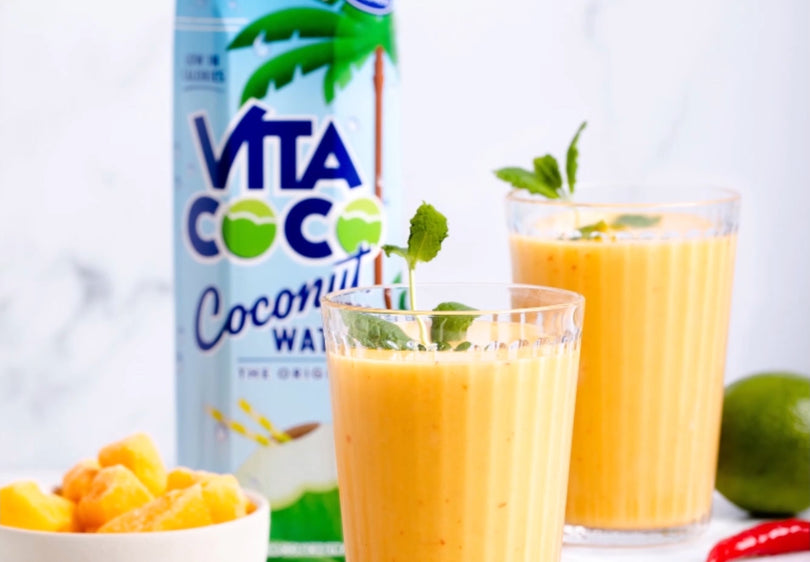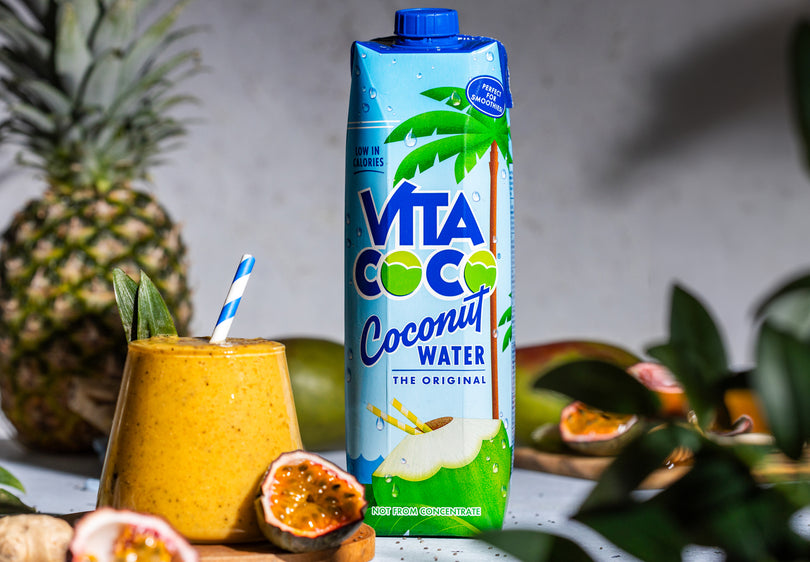

This smoothie is the perfect balance of carbs and protein to support recovery after training. Carbohydrates are required to help assist with the replenishment of glycogen which the muscles need for energy, and this is supplied by the tropical fruits and honey. Protein is essential for muscle recovery and repair and in particular leucine. This smoothie supplies 25g of protein which is the ideal amount needed to trigger muscle protein synthesis and support recovery. Additional nutrients in this smoothie include vitamins A and E to support a healthy immune system and these can be found in mango and passion fruits. Vitamin C found in pineapple and coconut water is vital for the synthesis of collagen that maintains healthy tendons and ligaments helping to lessen the risk of injury. Coconut water helps to hydrate and is a key source of the electrolyte potassium which ensure fluid balance in the body.

Ingredients
- 100ml Vita Coco coconut water
- 1 passion fruit
- 80g frozen pineapple
- 80g frozen mango
- 1 cm piece ginger (peeled)
- 25g scoop unflavoured protein powder
- 1 tbsp chia seeds
- 1-2 tsp honey
Method
Add all the ingredients to a blender and blitz until smooth.
*developed by - nutritionist Rob Hobson

Zharnel Hughes (aka Swift) says:
“I’m always blitzing up smoothies they are super simple to make even when I have a busy training day and pack all the right ingredients into my diet to aid recovery and keep me topped up with the good stuff.”
“I always start with Vita Coco as coconut water contains potassium which is a key electrolyte in the body to support recovery especially when you are sweating .. a lot!”
“I use passion fruit, mango and pineapple as I love a tropical sweet taste, and they are rich in vitamin C so win-win. Bananas always help add thickness and replenishing carbohydrates. Chia seeds add omega 3 which is good for muscle recovery.”
“Throw all the ingredients into a blender with some ice cubes and blitz until smooth.
You can use frozen or fresh ingredients and add a little more ginger for an extra kick.’

The sweet and fragrant mango is a perfect way to add natural sweetness and carbohydrate to the diet for glycogen replenishment. These have a high-water content which helps with hydration and are rich in vitamins A and E which are key player in maintaining immunity which is paramount for athletes given their intense training regime. Beta carotene which gives mango its orange colour is also an antioxidant which can help to reduce oxidative stress caused by intense physical activity.
Tropical passion fruits offer a rich source of vitamins A and C. Both are crucial in maintaining robust immunity and in mitigating damage from excessive free radicals, which can build up due to intense physical exertion. These fruits are also enriched with magnesium, vital for muscle functionality and recovery. During periods of stress, such as competitions, the body depletes magnesium more quickly, making it important to ensure sufficient intake during these times.
Pineapple is rich in vitamin C, vital for synthesising collagen, which is key in maintaining the health of tendons and ligaments. This aspect is particularly important for athletes due to their higher risk of tissue damage. Additionally, it aids in the absorption of iron from plant-based foods; iron is necessary for the formation of healthy red blood cells that transport oxygen and nutrients to muscle cells. The fruit also contains bromelain, an enzyme that assists in protein digestion.


